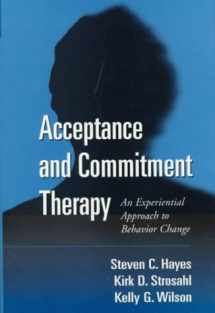
Acceptance and Commitment Therapy: An Experiential Approach to Behavior Change
Book details
Summary
Description
The prevailing view among therapists as well as clients is that a more vital life can be attained by overcoming negative thoughts and feelings. Yet despite efforts to achieve this goal, many individuals continue to suffer with behavior disorders, adjustment difficulties, and low life satisfaction. Acceptance and Commitment Therapy (ACT) is a unique psychotherapeutic approach that addresses this issue by altering the very ground on which rational change strategies rest. Within a coherent theoretical and philosophical framework, ACT illuminates the ways clients understand and perpetuate their difficulties through language. The book shows how interventions based on metaphor, paradox, and experiential exercises can enable clients to break free of language traps and make contact with thoughts, feelings, memories, and physical sensations that have been feared and avoided. Detailed guidelines are presented for helping clients recontextualize and accept these private events, develop greater clarity about personal values, and commit to needed behavior change. Providing in one volume a scientifically sound theory of psychopathology and a practical treatment model, and illustrated by a wealth of clinical examples, this is an important resource for practitioners and students in the full range of behavioral health care fields.


We would LOVE it if you could help us and other readers by reviewing the book
Book review



